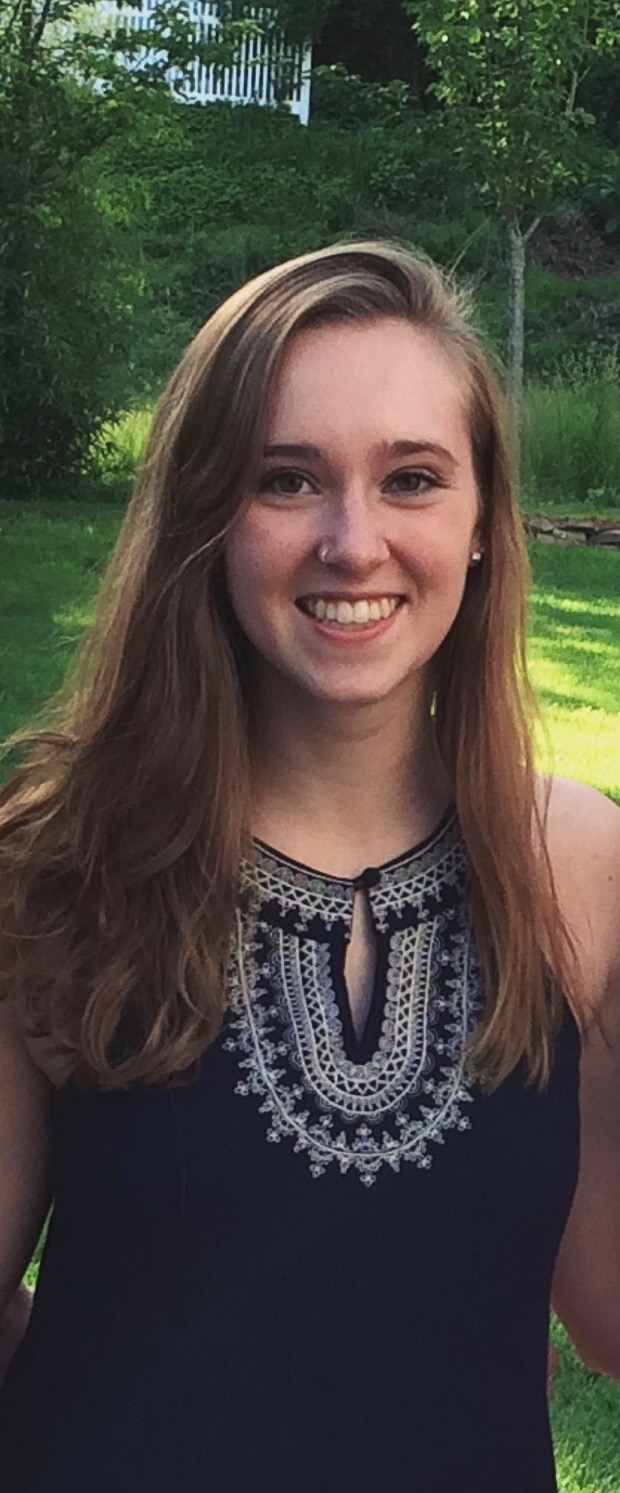Congratulations to our November Undergraduate of the Month, Katherine Hess! She is a senior working on a double degree in GIS and Environmental Science and Policy with a concentration in biodiversity/ conservation biology and a minor in Professional Writing. Thank you for being such a great representative of our department and we can't wait to see where your future takes you!
What are your interests within your program(s)?
I am interested in exploring the applications of GIS to study the environment, and especially the impacts of climate change. The minor in professional writing is because I think it is important for people studying issues like climate change and environmental issues to be able to effectively communicate their work to the public as well as their peers.
What previous jobs, internships, and volunteer experience have you had?
I have interned with an organization in my hometown called Sustainable Morristown, coordinating initiatives to get the town certified through the Sustainable Jersey program. This summer, I spent a month studying abroad in Tanzania where I took a class on wildlife conservation and got experience gathering data in the field, which was amazing since going out in the field meant safaris and the subjects of our observations were elephants, baboons, birds, and lions.
I also interned last semester as a tutor in the writing center on campus, where I helped students with papers for classes, cover letters, and personal statements.
Where are you/have you been interning?
I am studying the role of climate change and other potential causes of the early emergence of 17 year cicadas in Dr. Fagan's spatial ecology lab. My role is creating raster layers with historical and recent climate related data such as average annual temperature and average precipitation. We will use these layers to see if there is a spatial correlation between changes in climate variables and early cicada emergences.
What are your internship responsibilities?
I use ArcGIS to analyze how the ranges of different cicada broods overlap and change overtime, by compiling and comparing GIS data from past studies.
How is the internship experience relevant to your studies in Geographical Sciences?
My favorite parts of working on this project are how it combines my interests in GIS and environmental science, and how I get to apply what I’ve learned in GIS classes like 373 to researching a real world question.
What are your career goals after your graduate?
I would like to continue working at the intersection of GIS and environmental science, ideally with ecology/ biodiversity like I am in Dr. Fagan’s lab, although I am also interested in the intelligence and humanitarian aid applications of GIS.
What are some of your hobbies?
I am interested in politics and closely follow the news, as well as playing and refereeing volleyball. On campus I am on the executive board for the Environmental Science and Policy Student Organization (ENSPire) and I am the treasurer for the UMD Student Chapter of the Wildlife Society.
Where are you from?
Morristown, New Jersey
What has been your favorite class at UMD? Why?
My favorite class at UMD was an honors seminar I took my first semester freshmen year called Climate Change: Science, Economics, and Governance, because it was the first time I got to learn the detailed science behind climate change and how pressing the problem is for my generation, not just for future generations. The class also did a mock international climate treaty negotiation at the same time as the negotiation of the Paris accord, and it was fascinating to see how closely our ideas were reflected the actual agreement.
My other favorite class was GEOG130, Developing Countries with Dr. Luna, because it was a subject I had little prior knowledge about, but I found it fascinating to learn about the gender issues in developing countries as well as topics like population structures and how they can impact the functioning of a country. It also made my study abroad in Tanzania even more interesting because I saw examples of many of the issues we had talked about in class, such as observing the different roles of women and children when I did a homestay, and learning about the cultural differences between the different tribes such as the Iraqw and Maasai.


